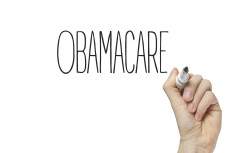Abigail R. Hall • Thursday, April 21, 2016 •
 The 1994 film “PCU” is a tale of a senior in high school who visits Port Chester University (otherwise known as Politically Correct University) over a weekend. In error, the admissions department sets the student up to stay with Droz, a 7th year senior. Living with Droz in a place called “the Pit,” it makes for an interesting weekend.
The 1994 film “PCU” is a tale of a senior in high school who visits Port Chester University (otherwise known as Politically Correct University) over a weekend. In error, the admissions department sets the student up to stay with Droz, a 7th year senior. Living with Droz in a place called “the Pit,” it makes for an interesting weekend.
Droz and his friends begin the weekend by disrupting a protest. They throw meat on a group of vegans and make enemies with a variety of other groups on campus including a bunch of stoners, radical feminists (the “Womynists”), and an Afrocentrist group. The president of the fictional university is positively obsessed with “sensitivity awareness” and multiculturalism. Among a variety of other policies (suggesting, for example, that Bisexual Asian Studies be given their own building) she proposes changing the school’s mascot from a potentially offensive Native American character to a whooping crane.
John R. Graham • Wednesday, April 20, 2016 •
 An extremely thorough analysis of changes in incomes and mortality in the United States, 2001 through 2014, presents sobering findings for those who think fixing our health system will make us healthier. The study, let by Raj Chetty of Stanford University, ran data on incomes and mortality through a battery of statistical tools.
An extremely thorough analysis of changes in incomes and mortality in the United States, 2001 through 2014, presents sobering findings for those who think fixing our health system will make us healthier. The study, let by Raj Chetty of Stanford University, ran data on incomes and mortality through a battery of statistical tools.
It is well understood that people in high-income households are healthier than those in low-income households. The latest research demonstrates how important incomes are to health status. Forty-year old men in households in the highest quartile of income (mean = $256,000 annually) had an average life expectancy just under 85 years in 2001. This increased by 0.20 years (a little over ten weeks) by 2014. For those in the lowest quartile ($17,000), life expectancy was about 76 years in 2001, and it increased only 0.08 years (a little over four weeks) by 2014.
Obamacare is likely to accelerate this gap, because it significantly reduces incentives for people in low-income households to increase their incomes.
The research really gets interesting when it explores other factors explaining lifespan. Unsurprisingly, smoking, obesity, and exercise were moderately significant factors for people at all income levels. However, other factors had opposite effects at higher incomes than lower incomes.
Robert Higgs • Sunday, April 17, 2016 •
 Anyone (individual or family) who enters the USA is required to fill out CBP Form 6059B, whereupon one must provide various personal information and answer several questions. One of the questions asks whether one is “carrying currency or monetary instruments over $10,000 U.S. or foreign equivalent.” A paragraph on the back of the form explains:
Anyone (individual or family) who enters the USA is required to fill out CBP Form 6059B, whereupon one must provide various personal information and answer several questions. One of the questions asks whether one is “carrying currency or monetary instruments over $10,000 U.S. or foreign equivalent.” A paragraph on the back of the form explains:
The transportation of currency or monetary instruments, regardless of the amount, is legal. However, if you bring in to or take out of the United States more than $10,000 (U.S. or foreign equivalent, or a combination of both), you are required by law to file a report on FinCEN 105 . . . with U.S. Customs and Border Protection. . . . Failure to file the required report or failure to report the total amount that you are carrying may lead to the seizure of all the currency or monetary instruments, and may subject you to civil penalties and/or criminal prosecution.
Okay, boy and girls, let’s think about this demand, with which one must comply in order to gain lawful admission to the USA.
Samuel R. Staley • Friday, April 15, 2016 •
Many have argued that drones–remotely controlled vehicles that shoot missiles or engage in deadly fire against targets–are a particularly dangerous form of waging war because it distances us from the carnage it produces. How can the value of human life be protected if it’s reduced to a video game with “pilots” operating from isolated bunkers using joy sticks? The new British film Eye in the Sky dispels those notions easily in a gripping story of modern techno-warfare, but not for the reasons many might think.
True enough, high-tech battles have the potential to displace much of our direct experience with the trauma of war. But Eye in the Sky shows all too clearly that this simple view of technology’s impact on conducting war breaks down–perhaps inevitably–when humans are involved. Moreover, Western sensibilities about the proper rules of engagement may do more to safeguard human life than is assumed. Almost every major scene involves a significant character confronted with an ethical dilemma surrounding rules of engagement or the personal responsibilities for literally and figuratively “pulling the trigger.” Someone still has to pull the trigger, and high-tech warfare, ironically, may make those decisions even more difficult. Eye in the Sky is, in effect, an extended meditation on the ethics of war.
Randall G. Holcombe • Friday, April 15, 2016 •
 If the government does something to you, should they also have the power to require you not to tell anyone? That’s the issue in a lawsuit Microsoft is bringing against the federal government.
If the government does something to you, should they also have the power to require you not to tell anyone? That’s the issue in a lawsuit Microsoft is bringing against the federal government.
Microsoft claims that over the past 18 months it has had 2,576 orders from the federal government to turn over customer data, with the requirement that Microsoft not reveal that the request was made or the data given.
The Fourth Amendment says that with probable cause, the government can initiate a search. I’m not questioning the legality of the search, but rather the idea that when the government compels you to do something, they also can compel you not to tell people what they made you do. Unless someone agrees beforehand, people should be completely free to reveal government activity they observe.
This case involves compelling Microsoft to turn over customer information from its cloud servers. If the government can require Microsoft to not reveal that search, what if, armed with a search warrant, a narcotics squad breaks down your door and searches your house for drugs? Can they then compel you to not reveal that the search took place? Doing so allows government to cover up its activities and places citizens at far too much risk for government abuse.
Kudos to Microsoft (along with Apple) for helping to protect us from the prying eyes of government.
William F. Shughart II • Friday, April 15, 2016 •
On Tuesday, April 5, Gov. Phil Bryant of Mississippi signed a bill passed by the state’s legislature shielding certain business owners, public employees and non-profit organizations from lawsuits charging them with unlawful discrimination for refusing to serve same-sex customers. Styled the “Protecting Freedom of Conscience from Government Discrimination Act,” the new law drew sharp criticism immediately from political activists as anti-gay and discriminatory on its face. Leading companies, such as PayPal, Disney, Hilton and Marriott, have threatened not to do business in states considering similar legislation.
Mississippi’s law is tailored narrowly to permit refusals to do business with LGBTs (lesbian, gay, bi-sexual and trans-gender people) if doing so conflicts with the service provider’s “sincerely held religious beliefs and moral convictions.” Gov. Bryant and state legislators thus grounded their support in the First Amendment to the U.S. Constitution, which says in part that “Congress shall make no law respecting an establishment of religion, or prohibiting the free exercise thereof….”
Regardless of one’s own religious convictions, that justification is itself far too narrow. The issue should not, in fact, be one of religious freedom, but rather one of private property rights. Private business owners should be free to refuse to serve any customer for any reason (“No Shirt, No Shoes, No Service”).
Alvaro Vargas Llosa • Thursday, April 14, 2016 •
 A technical committee of the Chamber of Deputies has voted to recommend the impeachment of Brazilian President Dilma Rousseff. If two-thirds of the lower house of Congress vote to impeach her, her fate will rest with the Senate, where a simple majority will certainly accept the case. During the process, Rousseff will be suspended and replaced by her Vice President and political foe, Michel Temer, until a final decision is reached.
A technical committee of the Chamber of Deputies has voted to recommend the impeachment of Brazilian President Dilma Rousseff. If two-thirds of the lower house of Congress vote to impeach her, her fate will rest with the Senate, where a simple majority will certainly accept the case. During the process, Rousseff will be suspended and replaced by her Vice President and political foe, Michel Temer, until a final decision is reached.
A “fin de siècle” atmosphere has pervaded Brazil as the country has descended into the moral abyss of Operation Car Wash, the corruption case that has engulfed the political class and the business community. This process has coincided with the collapse of the populist, statist socioeconomic model that has dominated the country under the Workers’ Party for a decade and a half, first under Lula da Silva and then under Rousseff.
Although Rousseff was the head of Petrobras, the state-owned oil giant, when most of the graft took place, Operation Car Wash, a vast scheme of bribes exchanged for succulent public work contracts primarily related to that entity, has so far failed to produce evidence that she was personally involved. There is little doubt, however, that she turned a blind eye when the evidence of what was happening surfaced and that she has tried to protect some of those involved, including former president Lula, who is now largely running her government.
Abigail R. Hall • Thursday, April 14, 2016 •
 File this under the category of “I told you so.”
File this under the category of “I told you so.”
In 2014, I wrote a piece on the idea of arming “moderate” Syrian rebels. The threat posed by the Islamic State, known also as ISIL or Deash, led many in Congress and President Obama to call for hundreds of millions of dollars to assist rebel forces.
I argued this was far from a good idea. I pointed out that the U.S. government has a track record of gifting weapons to those fighting those entities considered “unfriendly” to U.S. interests. Between 1970 and 1979, for example, the U.S. government sent some $74 billion in weapons abroad. Fueled by Cold War tensions, similar trades took place up until the early 1990s. Although the USSR collapsed and communism is no longer considered the predominant threat, the trend of giving arms to groups has continued ever since.
The idea behind such transfers is straightforward, by equipping those sympathetic to U.S. interests with weapons, the government hopes to defeat their opposition while decreasing or eliminating the “need” for U.S. troops.
While this may sound all well and good, the reality is not nearly as simply. I argued that these plans are doomed to fail. Put simply, these plans assume that the U.S. government can identify a problem, construct a solution, and effectively implement it. It neglects the fact that any intervention abroad involves operating in a highly complex system. Success requires an intimate knowledge of politics, economics, and religion, among other things. Moreover, any foreign intervention impacts hundreds of thousands, if not millions of people. It is absolutely impossible to know ex ante how these actors will react to a new policy, and how their reactions will cause other changes. This often results in positively disastrous consequences.
Lawrence J. McQuillan • Wednesday, April 13, 2016 •

The California High-Speed Rail Authority (CHSRA) has won the Independent Institute’s first California Golden Fleece Award for its lack of transparency and history of misleading the public about key details of the state’s “bullet-train” project, which no longer reflect what voters approved in 2008.
The agency’s “bait-and-switch” strategy justifies a statewide vote on whether or not to proceed with the train system. Californians should reject this unnecessary and expensive boondoggle.
Background
In November 2008, California voters approved Proposition 1A, a $9.95 billion bond measure authorizing construction of a high-speed “bullet train” between downtown San Francisco and the greater Los Angeles area. The vote was 53 percent in favor and 47 percent opposed. The ballot measure contained key details regarding the project’s cost, dedicated tracks, trip time, and financing plan. Many of these details have been changed repeatedly since 2008.
The Cost: A Moving Target
Before the 2008 vote on the bond measure, the California High-Speed Rail Authority said: “The total cost to develop and construct the entire high-speed train system would be about $45 billion.” Proposition 1A also promised voters that the train system would operate without taxpayer subsidies: “The planned passenger service by the authority in the corridor or usable segment thereof will not require a local, state, or federal operating subsidy.” Soon after voters approved the project, however, cost projections escalated.
John R. Graham • Wednesday, April 13, 2016 •
 Obamacare has driven individual health insurance premiums up so high that people are forgoing comprehensive health coverage in favor of short-term policies, according to the Wall Street Journal:
Obamacare has driven individual health insurance premiums up so high that people are forgoing comprehensive health coverage in favor of short-term policies, according to the Wall Street Journal:
Robin Herman, the 34-year-old owner of a marketing firm in San Francisco, bought a short-term policy in December. The monthly cost of her short-term coverage, plus conventional ACA-compliant plans for her two children, is roughly one-quarter of what she would have paid for conventional health plans covering all three of them, she says.
“This is saving me a ton of money for the year,” she said, despite the penalty. Plans that comply with the health law’s rules cost more than her old pre-ACA policy and are “just not affordable,” she said.
(Anna Wilde Mathews,” Sales of Short-Term Health Policies Surge,” Wall Street Journal, April 10, 2016.)
Sales of these policies have doubled or more since 2014, according to sources cited by Ms. Mathews. This surely feeds into the problem that Obamacare enrollees are sicker than expected: The healthy candidates are choosing these policies.
Because these policies are underwritten for pre-existing conditions, the healthy can buy them. However, when the term is up, they are underwritten again. This is very perverse. Imagine if your term life insurance policy lasted only one year, after which you were underwritten again. If you had a heart attack, for example, your premium would jump dramatically next year, such that you could not afford it. The whole point of the term life insurance would be defeated!
 The 1994 film “PCU” is a tale of a senior in high school who visits Port Chester University (otherwise known as Politically Correct University) over a weekend. In error, the admissions department sets the student up to stay with Droz, a 7th year senior. Living with Droz in a place called “the Pit,” it makes for an interesting weekend.
The 1994 film “PCU” is a tale of a senior in high school who visits Port Chester University (otherwise known as Politically Correct University) over a weekend. In error, the admissions department sets the student up to stay with Droz, a 7th year senior. Living with Droz in a place called “the Pit,” it makes for an interesting weekend. An extremely thorough
An extremely thorough  Anyone (individual or family) who enters the USA is required to fill out CBP Form 6059B, whereupon one must provide various personal information and answer several questions. One of the questions asks whether one is “carrying currency or monetary instruments over $10,000 U.S. or foreign equivalent.” A paragraph on the back of the form explains:
Anyone (individual or family) who enters the USA is required to fill out CBP Form 6059B, whereupon one must provide various personal information and answer several questions. One of the questions asks whether one is “carrying currency or monetary instruments over $10,000 U.S. or foreign equivalent.” A paragraph on the back of the form explains: If the government does something to you, should they also have the power to require you not to tell anyone? That’s the issue in
If the government does something to you, should they also have the power to require you not to tell anyone? That’s the issue in  A
A  File this under the category of “I told you so.”
File this under the category of “I told you so.”
 Obamacare has driven individual health insurance premiums up so high that people are forgoing comprehensive health coverage in favor of short-term policies, according to the
Obamacare has driven individual health insurance premiums up so high that people are forgoing comprehensive health coverage in favor of short-term policies, according to the 




